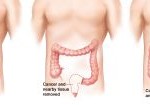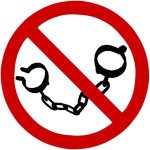How U.S. Airlines Are Battling Ebola
With one documented case of Ebola already showing up in the U.S., the disease has become a major concern for Americans. While President Obama has stated that there will be no outright ban on travelers from affected countries, U.S. airlines are taking precautions in order to keep their passengers safe. Read the report on travel ideas being a bad idea here.
Increased Vigilance
After a briefing with health officials, the president announced that the U.S. government will increase passenger screenings in the United States to detect the Ebola virus. The exact nature of the screenings is still unknown but the administration is considering handheld scanners to check for fever in passengers coming in from affected countries and closer tracking of travel history for international travelers arriving in the United States.
U.S. Airlines will be meeting with government authorities to discuss how to further protect passengers. In the meantime border agents and flight attendants are being trained on how to spot travelers who may be infected with Ebola. Public health officials seem to be confident that an outbreak on the same scale as the one in West Africa will not happen in the United States but people who have come in contact with an Ebola patient will be closely monitored.
In Ebola ridden countries passengers are screened at exit points through questionnaires asking whether they have symptoms or, visual inspection and taking the temperature of those passengers who are thought to be candidates for infection. Some countries have shut down flights traveling to and from West Africa but the World Health Organization has stated that travel bans don’t really work and could cause economic concerns.
Symptoms & Infection
While expanded screenings at airports will be helpful, the disease can take up to 21 days to present symptoms. But there are ways to protect yourself against infection. Ebola spreads by direct contact and is not airborne like colds and flu. In order for a person to contract Ebola they must come in direct contact with the bodily fluids of an infected person such as blood or saliva. Also, a person is not contagious until symptoms present themselves. Washing your hands frequently or using an alcohol based hand sanitizer can help. Seek Medicare care immediately if you develop a high fever with headache, muscle pain or vomiting. Read more here about Ebola symptoms







